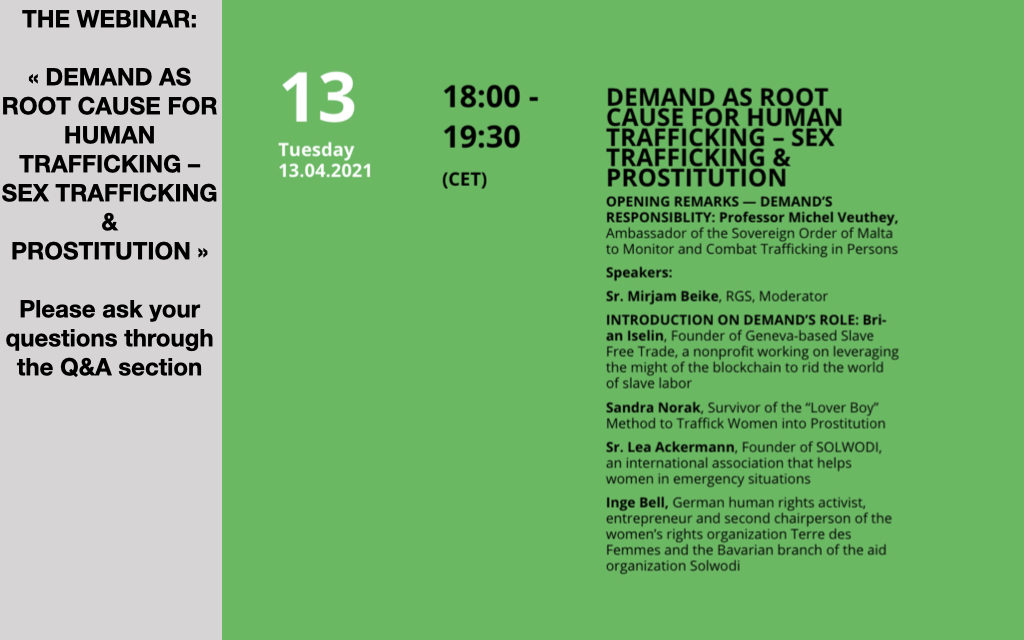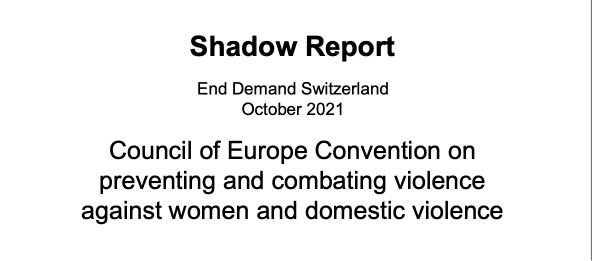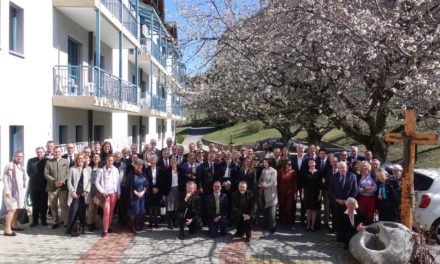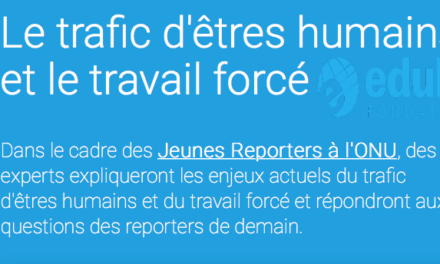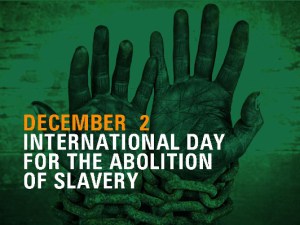This webinar tried to answer the following questions:
- What is the role of demand in relation with sex trafficking?
- How do present laws support victims of sex trafficking?
- How to improve the situation?
Demand as root cause for human trafficking – sex trafficking & prostitution
“No little girl grows up dreaming of becoming a prostitute.” — Sandra Norak, survivor of human trafficking.
Trigger warning: this article includes topics of sexual abuse, violence and assault.
GENEVA, SWITZERLAND – Four inspiring speakers were invited to our online roundtable on 13 April 2021 to discuss issues around sex trafficking and prostitution. The session covered three core topics — the role of demand, how we present laws supporting victims and how we should improve the situation. The webinar was hosted by Professor Michel Veuthey, Ambassador of the Sovereign Order of Malta, to monitor and combat human trafficking, moderated by Sr. Mirjam Beike, Representative at the UN in Geneva for the Sisters of Our Lady of Charity of the Good Shepherd, and discussed by the following contributors (in order of appearance):
Addressing demand – the root cause for sex trafficking & prostitution.
Germany’s controversial legislation around legalizing prostitution has sparked human rights activists and lawyers to speak out about the damage it has caused to young adults and children over the past two decades. They call for countries like Germany to implement the Nordic Model to tackle demand around sex trafficking, prostitution and change how it is viewed in society.
Sandra Norak, from Germany, described her experience of being groomed into the situation by her pimp. He targeted her as a young girl, desperate for emotional support that she couldn’t receive from her ill parent. Norak explained that the attackers prey on neglected children and young adults, coming from broken homes, having endured sexual assault and who experience PTSD. More strikingly, it is sometimes not the vulnerable children who are drawn in, it is also young girls showing no evidence of troubled upbringing who find themselves stuck in the same situation.
“No little girl grows up dreaming of becoming a prostitute. Prostitution steals these dreams and causes lifelong damage to these girls. The only thing you’re worth is what you’re told by your trafficker. In Germany, we have created a nation of broken lives and souls.” – Sandra Norak, survivor of human trafficking.
Norak described the horrific emotional abuse she received through her pimps, who repeatedly told her she was worthless, after having earned her trust and taken her virginity, as well as the violence through endless penetrations and assault.
The survivor compares Germany’s laws that legalize prostitution to buying cigarettes in a store – creating and promoting demand for an easily accessible product. Norak says that “every state must be a role model to its women and show them the truth about what prostitution really is – violence, danger and abuse. It is about experiencing the deepest abysses of our society.” Women who wish to flee will do so physically but will never be freed emotionally. The mental damage sex trafficking inflicts on women takes decades of therapy and pain to heal from. It is a degrading and difficult scenario to exit from. Pimps become rich as they hide behind legal structures and are glorified on television programs as successful businessmen, who continue to groom young women daily, by trafficking, abusing, and taking advantage of them.
We must work towards ending prostitution and decreasing demand.
Moreover, Sister Lea Ackermann is concerned for young women being dragged into prostitution. She has dedicated her life to the cause through the Foundation for Children in Distress and Misery to get children back into school, protect and make them proud of what they can achieve.
Sister Ackermann vows to never label women as prostitutes: “By calling them ‘women in prostitution’, we are able todisassociate them from being ‘prostitutes’ as they are not free and did not choose it as a profession.”
Inge Bell, celebrated journalist, investigated her most scandalous story in the 90s following the war in Kosovo, where she discovered the trafficking of children for prostitution, recruited specifically for international peacekeepers and United Nations soldiers. These young girls were brought to Macedonia and Balkan countries to satisfy the people who were meant to be the ones maintaining human rights, not contributing to their abuse.
“Please stop the demand. Prostitution is contrary to gender equality – it’s a pure act of violence against women.” – Inge Bell, second chairperson of Terre des Femmes and German human rights activist.
The Nordic Model towards prostitution laws is about decriminalizing women and criminalizing the buyers. The modelhelps women leave prostitution and stops demand. Bell states that ‘sex work’ is not about sex nor is it about work – it is about rape, violence and is a non-consensual act. Women give consent to receiving money, but never to receiving sex. It’s important for us to raise awareness in schools and tell children that sex is not a commodity, nor something that can be bought or exchanged.
Data reports show that countries which adopt the Nordic Model, such as Sweden, have a negative connotation towards users of such services, like how one might view drug addicts. In Germany, prostitution is simply seen as ‘sex work’, giving Germany the image of being ‘the brothel of Europe’ by other countries.
It is up to countries like Germany, who have failed to liberalize prostitution, to become leaders of change and advocate towards the Nordic Model to end the absurd legislation they currently hold, which Bell describes as anti-humanistic.
“We need to change Germany’s legislation to show we’ve hurt thousands of children, to help women out of prostitution and criminalize the pimps who are creating violence against women.” – Inge Bell, founder and vice-president of Terre des Femmes.
So, how do we reduce the number of buyers?
Reducing sex trafficking can be achieved by shrinking the illicit market in a given population, rather than by reducing vulnerabilities.
Through reducing the transactions, and blocking the communication channels, we reduce exploitation. According to Brian Iselin, we must break the communication channels, introduce more women into parliament, imprison the brothel owners and change how nations address the issue of women in prostitution.
Additionally, Iselin stated that sex is treated as a commodity and an object for sale. He is infuriated by our failure globally to have any impact at all towards trafficking. We are ignoring its root cause – trafficking is not linear, it is circular. Everything points back towards demand. In order to tackle sex trafficking, we must acknowledge demand as the root of the problem. We must also recognize factors which cause this demand.
“Everything points back to demand. It is not by treating a headache with paracetamol that one will get rid of the tumor causing it.”– Brian Iselin, founder of Slave Free Trade.
Bell encourages you to go and talk to your local politician, support the grassroot NGOs who are tackling the issue, and to raise awareness through simply talking about it with your peers or family at the dinner table.
Ackermann adds that we must do so for vulnerable children, to ensure they are not misused and that they do not end up living on the streets.
Norak argues that when you treat prostitution as a job, it creates high demand – and demand is never perceived as something negative to society, particularly in nations like Germany. To tackle the problem at hand we must show that this demand is wrong. We must implement the Nordic Model to combat the human beings who are being used and abused. We must criminalize sexual services and educate our society on the consequences of what happens to these young women in the trade.
We need to give children a chance to give society a chance.
Author: Alicia Patterson-Waites (aliciapwaites@gmail.com)

